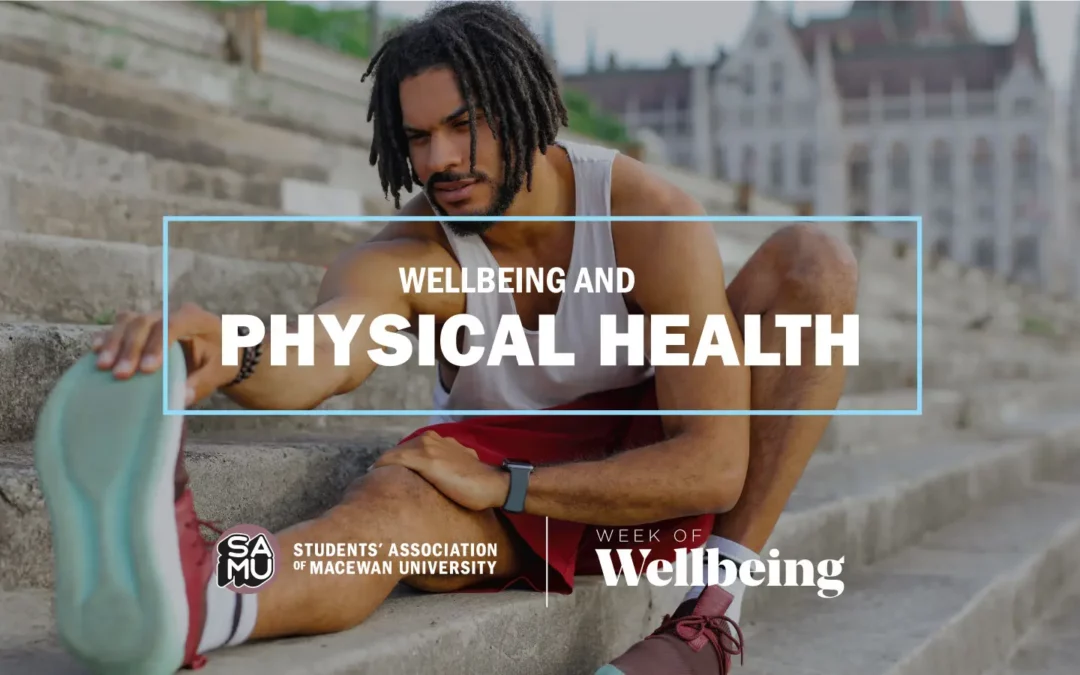Physical Wellbeing Blog Post: Ways to Take Care of Your Physical Wellbeing
Physical Wellbeing is the ability to carry out actions without physical limitations such as fatigue or bodily pain. Neglecting physical needs such as sleeping, nutrition and physical activity can negatively affect your emotional and mental wellbeing. It’s important to ensure we are meeting our physical needs.
Ways to Manage Physical Wellbeing:
- Physical Activity
- Although people usually think of things like going to the gym or running, physical activity can be any activity you enjoy that allows you to move your body. By finding a physical activity that you enjoy doing, you can better make this part of your routine.
- Some examples of physical activities:
- Fitness classes; either from a fitness center or videos online
- Going for a walk or a run outside to get some fresh air and sunlight
- Dancing, either in a class or just by yourself for fun
- Biking to your favourite café or through a nice area
- Eating Well
- Eating foods that make your body feel good significantly affects your body and mind’s ability to function well. A balanced diet usually includes eating foods that contain vitamins, minerals, antioxidants, carbohydrates, protein and healthy fats. However, remembering how much you’ve eaten of each can be a stressful task and healthy eating shouldn’t be stressful. By loosely keeping track of what you’ve eaten and how you feel after can help you become better attuned with your body’s needs and what foods you should consume to fulfill those needs.
- Sleep
- Getting enough sleep is as important to your bodily health as eating well and physical activity. Arguably one of the most neglected aspects of students’ physical health, sleeping allows the body to repair itself from daily tolls and ensure that it continues functioning properly. Good sleep can help with concentration and memory and also lowers the risk of physical and mental illnesses. Like other aspects of physical health, listening to your body and allowing yourself to sleep when you need to will help you feel your best.
Wellbeing blogs are written by the SAMU Wellbeing Assistant, Lauren Rundell.

